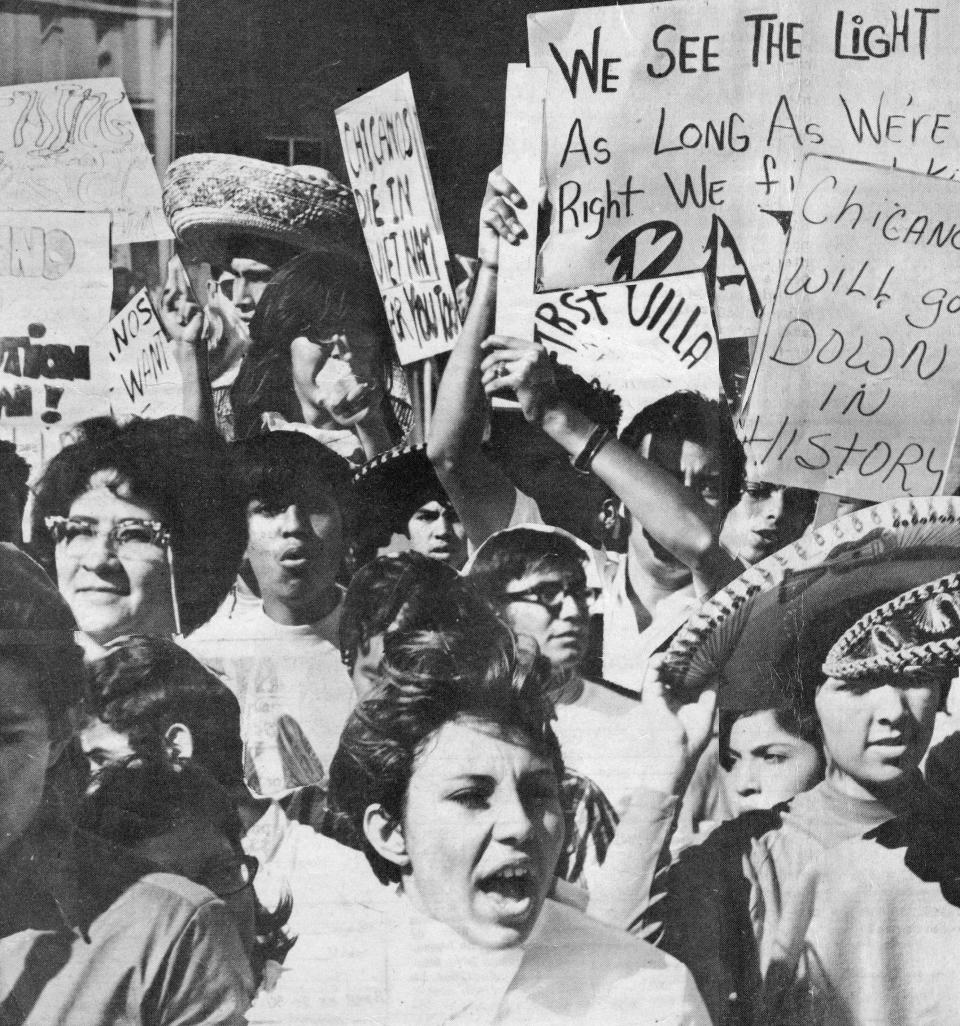The types of stories told during Hispanic Heritage Month are important | Opinion
Marta V. Martínez is the founder and executive director of Rhode Island Latino Arts and continues to coordinate the annual celebration of Hispanic Heritage Month. She is a community oral historian and author of "Nuestra Raíces: Latino History of Rhode Island." She can be reached at marta@rilatinoarts.org
Coming up on September 15, Rhode Island like other states around the country will be joining the month-long celebration of Hispanic Heritage Month (Sept. 15-Oct. 15). However, and in all transparency as the founder of Hispanic Heritage Month Celebration in Rhode Island in 1988, I have a concern: in an effort to make it more palatable or commercially viable, the media too often focus on uplifting and positive artforms that make us feel good, while the stories of struggle, oppression, prejudice and injustice are whitewashed or ignored.
Why not highlight programming or write stories that reflect our true history, stories about historical challenges or difficulties? You cannot assume that we already know about the lynchings in South Texas in the 1910s, the Zoot Suit Riots, about Mendez v. Westminster, the Chicano-led high school walkouts of the 1960s that permanently changed higher education enrollment for Latino students or efforts to gain political clout by Latinos right here in Rhode Island.

Approached in the right way, these stories can be ultimately seen as uplifting because the historic struggles of Puerto Ricans, Mexican Americans, Cubans and other Latinos are uplifting stories. For only through those struggles have we been able to achieve more social justice in this country.
On this 35th anniversary of Hispanic Heritage Month in Rhode Island, I am proposing that we begin to consider observing the month of September as Latino History Month as a way to provide a deliberate opportunity to reflect on the common humanity underlying all people, and to raise awareness and foster respect for the heritage and contributions of people of Latin American and Caribbean descent.
More: Kids as translators? Non-English speakers lack trained interpreters in RI's local courts
Here are some facts: American Hispanic/Latino history is rich, diverse and long, with immigrants, refugees and Spanish-speaking or Indigenous people living in the United States since long before the nation was established or African slaves brought here. Today, Latino Americans bring with them traditions and cultures from 21 Latin American and Iberian nations. America’s Hispanic population continues to grow, reaching a record 62.5 million in 2020, or 18.7 percent of the U.S. population.
The 2020 Census shows that the Latino population of Rhode Island has reached 182,101, or 39.4 percent of residents here are Latin American people of color, including several racial, ethnic and Indigenous groups. More than 14% of Rhode Island’s workforce is Latino, 48% are Providence residents and almost half of Latino children live in a home where English is not the first language. These statistics are significant, but they don’t describe the personal stories that go behind those numbers.
More: Hispanic families in crisis call this RI psychologist an 'angel.' How she's saving lives.
Rhode Island Latino Americans have fought in every war since World War II. We are business owners and veterans and teachers and public servants, and we form part of the fabric of America. We have participated in every aspect of America's effort to secure, protect, and advance the cause of freedom and civil rights, and have stories that are an inspiration to all citizens, that reflect the triumph of the human spirit, and that offer the hopes of everyday people to rise above both prejudice and circumstance and to build lives of dignity.
Too often the focus of contributions by Latinos is on music, food, dance or other artforms that make us feel good, and less emphasis is placed on programming that reflects our history. As an educator and former teacher, I see a U.S. public education system that does not do enough to teach Latino history in this country, and often Hispanic Heritage Month is the only opportunity for any student to learn about Latino history. The people of Latin American descent or Latin-American Americans have made measurable differences in Rhode Island, in their communities and respective industries. I encourage all Latino American Rhode Islanders to shape and share their own stories because if we don’t tell our own stories, someone else will.
This article originally appeared on The Providence Journal: The media too often focus on uplifting and positive artforms. Why not highlight stories that reflect our true history?

